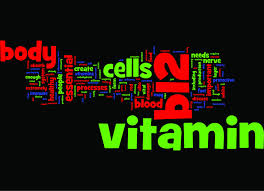Folate or folic acid, commonly known as vitamin B-12, plays a vital role in many bodily functions, including cell repair and maintenance, DNA synthesis, amino acid metabolism, and the formation of leukocytes and erythrocytes. It prevents obesity and various cancers, including colon cancer, as well as preventing heart disease.
Here are the top 5 health benefits of folate:
1. Fetal development
Erythrocyte production – the adequate and appropriate development of an unborn child’s brain and spinal cord – is dependent on foods rich in folate. A lack of folate during pregnancy can lead to gaps in the development of the spinal cord, which can result in paralysis, brain damage, or a stillborn child.
2. Production of red blood cells
Folate is key in the development of red blood cells or erythrocytes. A lack of this compound can make the body susceptible to cancer. In addition, the body’s defense mechanism, the white blood cells, are also manufactured in the presence of folate supplements.
3. Thwarting heart disease
Folic acid supplements also help the heart stay healthy and function optimally. Folate deficiency can lead to an increased risk of heart disease, coronary complications, and strokes in patients. In the U.S., after bread and cereal companies were asked to add vitamin B12 to their products, the rate of heart disease and stroke decreased by about 15 percent. Folic acid also helps remove homocysteine, a toxic compound that can lead to severe artery damage if not eliminated from the blood.
4. Helps in depression
Several studies have indicated that folate supplements can reduce depression. A deficiency may cause an increased risk of depression and dementia.
5. Helps keep brain young
Adequate folate levels are necessary for proper brain functioning. Studies have shown that folate benefits the brain by slowing down the effects of aging.
Folate food sources
Good dietary sources of folate include: green leafy vegetables like spinach and broccoli, bananas, strawberries, oranges, tomatoes, asparagus, legumes, yeast, cereals, mushrooms, fish, eggs, poultry, meat (specifically organs like liver and kidneys), and dairy.













